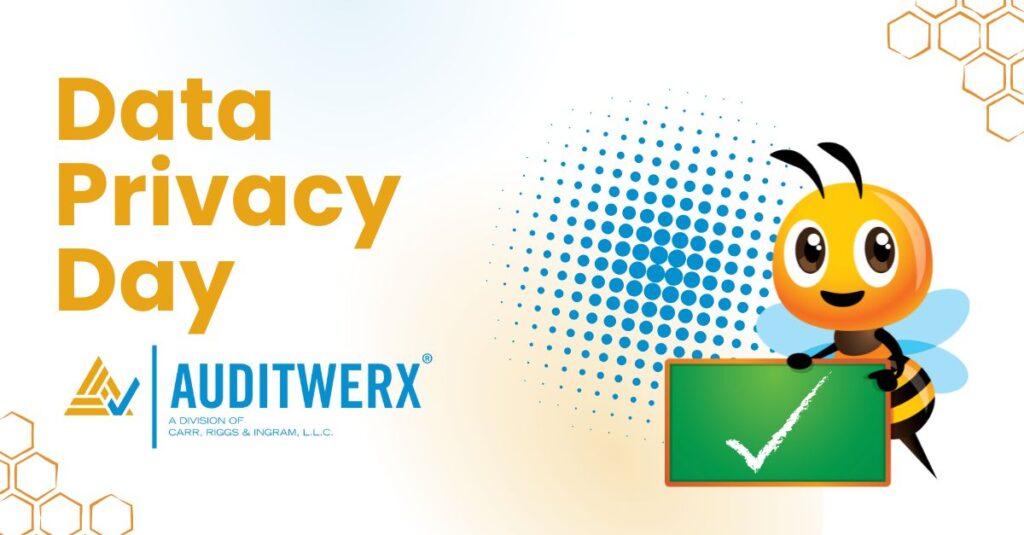
Data Privacy Day is expanding into Data Privacy Week! Auditwerx supports spreading awareness about online privacy and giving you the resources you need to keep your personal information secure online – but Data Privacy Week doesn’t stop there! It also encourages businesses to be more transparent about how they collect and use user data. If you’re a business owner it’s important to know how your systems work, and what you are using collected data for – it could come back to haunt you during your next compliance assessment if you aren’t careful!
Data Privacy for Individuals
Understand the tradeoff between privacy and convenience. Many online services ask for personal information to use their services. While it may make things more convenient, it’s important to ask yourself why the app or website needs this information. Weigh convenience against the benefits you might receive, delete unused apps, and keep your devices up to date.
Manage your privacy level when setting up new services or apps. It’s important to take an active role in managing the settings of your devices, applications browsers, and other online services. Each one will have different options that you can review to make sure you are comfortable with the level of personal information being shared.
Protect your data by creating long, secure passwords and storing them in a password manager. Enable multi-factor authentication wherever possible.
Data Privacy for Businesses
Consumers the world over have concerns about how companies are using their data. Being transparent about how you use, collect or share consumer data can help build trust.
Assess your company’s data collection practices. Understand the privacy laws that apply to your business and follow reasonable and measurable security practices to keep personal data safe. Make sure data collection only occurs when there is a legitimate need. Don’t forget – if a vendor maintains, collects or uses consumer data on your behalf you’re still responsible for the way that data is handled!
Adopt a privacy framework to manage risk. Building privacy practices into the way your business operates every day is the easiest way to ensure the appropriate frameworks are followed.
Educate your employees and create a culture of privacy. Ensure new and existing employees understand their role in your company’s privacy culture, and build it into your onboarding process.






